Essay on Globalization, Free Trade & Non-Elected Government
Globalization and Capital Flows
I'd like to teach the world to sing
In perfect harmony
I'd like to hold it in my arms and keep it company
I'd like to see the world for once
All standing hand in hand
And hear them echo through the hills 'Ah, peace throughout the land'
Globalization is a movement towards free trade, unobstructed capital flows, open borders for immigration, and interdependency among nations.

The ideal of brotherhood of man and one world is not new.
However movement towards global government has speeded up in the last half century, driven by awareness of the risks of atomic and biological warfare and the undisciplined use of the earth.
The urge to form international linkages is old and universal in the political right and the left, the religious and agnostic, the artistic dreamers and the blatantly commercial.
Wendell Willkie, the Republican candidate for president in 1940, promoted 'One World'.
The early communists sang:
So comrades, come rally
and the last fight let us face,
The Internationale unites the human race.
Coca Cola hucksters mawkishly crooned how they would 'like to teach the world to sing in perfect harmony'. Children find in Disney's Magic Kingdom that 'it's a small world after all.'
The descendants of the flower-children hold hands and sing 'Kumbaya'. Ex-President Clinton spoke of 'ultimate wisdom of a borderless world for people and for trade,' (1) on the day that terrorists destroyed the World Trade Center and killed thousands of Americans.
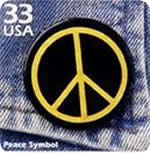
Deindustrialization is one result of globalization and has made the U.S. capital market highly dependent upon laws, customs, politics, and decisions made in other countries.
For the most part, this dependency is fragmented, infinitely diversified, and counter-balanced by alternative dependencies.
In some cases, such as oil, the dependency is obvious, but generally the connection is unclear and as seemingly insignificant as a change in an obscure tariff classification in Malaysia or the rewording of a minor article in Brazilian tax law.
So far, globalization has worked to the benefit of some, but not all Americans. The primary and most serious threat to globalization is international terrorism, which has the potential to thrust nations into isolationism, particularly the United States.
In fact, this is an objective of the al Qaeda terrorists. Other opponents included labor unions, anti-immigration factions, extreme nationalists, and xenophobes of various stripes. Enemies of globalization are strange bedfellows.
Advantages of Globalization
The practical advantage of globalization is suggested in the trade and commerce between the states that make up the United States. Americans living in any state may buy goods made in any other state without tariffs or foreign exchange transactions.
When there is a shortage of labor in one state, people in other states get in their cars to drive there, without passports or working permits. No one is concerned if Florida has a negative balance of trade with New York, or if citizens of Alaska are financing their homes with money from savers in the other forty-nine states.
In return for this economic flexibility, individual states surrender their sovereignty to the federal government.
However, when we try to transfer the advantages of the free movement of goods and services across the political boundaries of states within a single monetary and legal system to nations divided by currencies and laws, we may create an economic system that is far less stable.
Global terrorism has the potential of slowing down or even shutting off international commerce in response to fear of clandestine commerce in nuclear weapons. Such drastic action might be required, for example, after a nuclear bomb is detonated in a U.S. city.
Because of globalization, deindustrialization, and interdependency, any significant reduction in international trade would cause unemployment in the U.S., with the potential to bring on an economic depression.
The national security aspects of deindustrialization have not been extensively addressed, primarily because the move towards globalization has been gradual and from hundreds of thousands of isolated decisions, both private and governmental.
There are also legitimate concerns that globalization may lead to less freedom, not more. In any event, globalization is being driven by technological, psychological, demographic, and economic forces that seem beyond the control of any country.
Sovereignty on many critical issues has been surrendered to the World Trade Organization — a non-democratic body dominated by foreign countries, many hostile to the U.S., with power to impose economic sanctions and demand that Americans change laws already approved by their elected representatives.
Non-Elected Government
One interesting development in the last fifty years has been the rise of 'international government'. 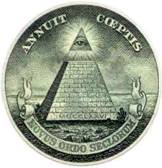 It is not necessary to delve in conspiracy theories, black helicopters, or the secret plotting of Illuminati, Skull and Bones, the Freemasons, the Bilderbergs (2), the strange symbol on U.S. currency, or the Trilateral Commission (3) to recognize there are organizations other than the state that control our lives.
It is not necessary to delve in conspiracy theories, black helicopters, or the secret plotting of Illuminati, Skull and Bones, the Freemasons, the Bilderbergs (2), the strange symbol on U.S. currency, or the Trilateral Commission (3) to recognize there are organizations other than the state that control our lives.
There is no formal, unified government with sovereign power over all citizens of the world.
However, there are over forty thousand global associations (governmental and non-governmental) with specific interests that cover almost ever nuance of human behavior.
There are tens of thousands of bilateral and multilateral agreements between countries that voluntarily surrender bits of sovereign power.
International organizations write rules, regulations, and set standards that are often accepted by sovereign governments. They also set up courts, arbitration boards, and panels of judges to decide on many issues.
They impose fees and taxes on those who choose to be bound by their rules and benefit from membership. By the twenty-first century, there existed a dense thicket of regulations, rules, procedures, standards, judicial procedures and cross-border limits on economic activity.
International Organizations
Since the end of World War II, the United States has supported the drift towards world government. 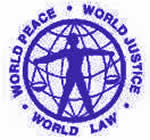 America has backed the United Nations, the North Atlantic Treaty Organization (NATO), the World Bank, the International Monetary Fund, the Asian Development Bank, the World Trade Organization, and a multitude of other government sponsored international institutions.
America has backed the United Nations, the North Atlantic Treaty Organization (NATO), the World Bank, the International Monetary Fund, the Asian Development Bank, the World Trade Organization, and a multitude of other government sponsored international institutions.
European states have abandoned their antagonism and sovereignty to form a European Union with its own currency and governing bodies. This was the result of years of gradual change, starting with Robert Schuman's plan for the creation of the European Coal and Steel Community in 1950, through many advances until the forming of a Single Market in 1993 and the introduction of Euro notes and coins in 2002.
American wars became multinational efforts, when possible backed by the United Nations, described as international peacekeeping or police actions. The 2001 War in Afghanistan brought together the NATO nations and a broad alliance of countries from every corner of the world.
Significantly, rather than getting approval of Congress to declare war as required in the Constitution, in recent decades U.S. Presidents have sought support from other countries and from the United Nations.
The reluctance of the United Nations to back the 2003 War in Iraq because of a threatened veto by France – a country desperate to shore up its fading influence in world affairs – suggested the beginning of new international alignments and a reassessment of the United Nations and NATO.
up its fading influence in world affairs – suggested the beginning of new international alignments and a reassessment of the United Nations and NATO.
The World Trade Organization, Interpol, the International Organization for Standardization, and the World Court are some of the thousands of associations that make up a seemingly inexorable trend towards world government, chipping away sovereign power, piece by piece. President George W. Bush's principled stand with regards to states that support terrorists, including Iraq, may be but a pause in the trend towards unquestioned globalization.
The International Monetary Fund
In most respects, world government is not democratic. Bureaucrats, largely anonymous, take actions without accountability to any electorate. The International Monetary Fund is archetypical.
This is an organization of a thousand civil servant economists from many countries, most with slight practical business experience and salaries of over one hundred thousand dollars, free from taxation, enjoying diplomatic immunity and generous expense accounts.
These officials act through faceless committees, without transparency, to impose orthodox but disastrous policies on the unfortunate client-nations that are lured into their trap of promised assistance.

The web of international organizations that influence corporate behavior is exceedingly complex. There has been an international movement in corporate governance since the 1990s.
Many international organizations have an interest in regulating company behavior and this influences corporate motivation and capital flows. In every area, special interest groups that are unable to gain support through democratic processes in their own country, turn to international associations that are easier to control, in order to pass resolutions that influence their home government.
The Power of Linkages
The power of world government is not in organizations backed by law, as is the case in national governments, but rather in multifaceted linkages between tens of thousands of associations and groups, each acting with narrow purpose. These connections make it appear there is international consensus on thousands of issues.
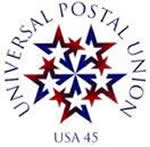
Seeming agreement among nations that include trading partners sways officials of sovereign governments. To create this consensus, private groups, commercial and nonprofit, work with associations that have government bodies as members, in exchanging ideas, information, and engaging in cooperative action.
Some international associations, like the World Scout Movement, Amnesty International, and the International Red Cross are well-known.
However, with over forty thousand organizations, and perhaps hundreds of thousands of special committees, working groups, and initiatives, full knowledge of what is occurring is beyond anyone's capacity for comprehension.
Domestic legislators and civil servants are under pressure to conform to 'international standards'. This force is irresistible when technical issues are backed by dozens of international associations, each with a public relations arm and proof of implementation in competing countries.
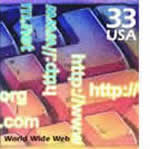
Until the 1990s, much of the activity of this vague 'international government' was, if not secret, at least hidden and relatively difficult to discover.
Reports of meetings and committees were usually restricted to members and were sold for hefty fees. However, with the coming of the Internet, this has changed; tens of thousands of associations now keep a web site and offer free reports, press releases, and studies for download. There is more information available than we can digest.
The G30: World Government in Practice
The story of the development of standards for international securities clearing and settlement during the 1990s shows how 'international government' works. The Federal Reserve flow of funds accounts indicate the importance of foreign issuers and investors in U.S. markets.
A shortage of domestic equities, spurred by deindustrialization, 'asset-lite' thinking, and the buyback movement, induced domestic investors to seek offshore opportunities.
To make foreign securities attractive to American institutions, many of which had legal impediments to the use of offshore custodians, Wall Street and foreign governments tried to reduce clearing and settlement risks and open foreign securities markets to U.S. institutional investors.
